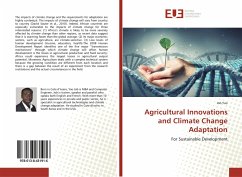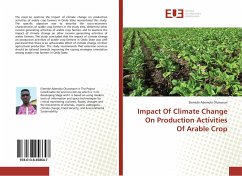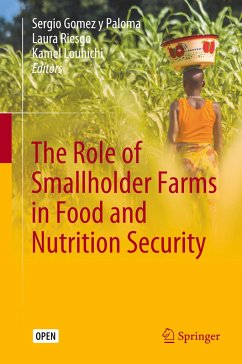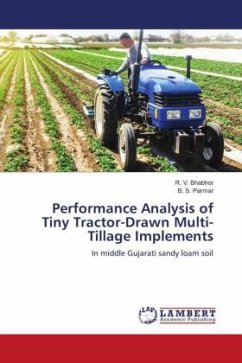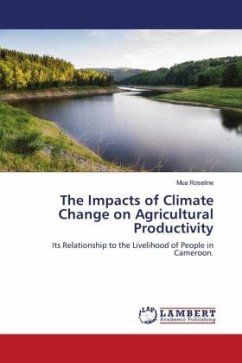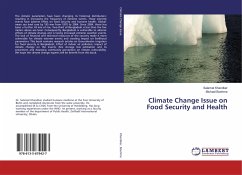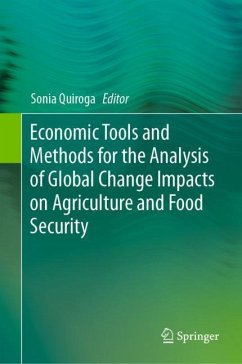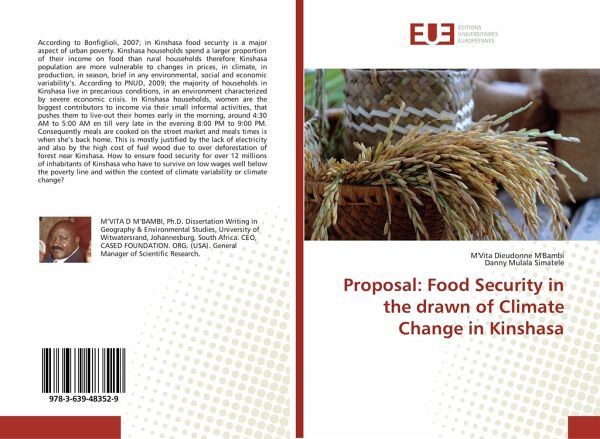
Proposal: Food Security in the drawn of Climate Change in Kinshasa
Versandkostenfrei!
Versandfertig in 6-10 Tagen
27,99 €
inkl. MwSt.

PAYBACK Punkte
14 °P sammeln!
According to Bonfiglioli, 2007; in Kinshasa food security is a major aspect of urban poverty. Kinshasa households spend a larger proportion of their income on food than rural households therefore Kinshasa population are more vulnerable to changes in prices, in climate, in production, in season, brief in any environmental, social and economic variability's. According to PNUD, 2009; the majority of households in Kinshasa live in precarious conditions, in an environment characterized by severe economic crisis. In Kinshasa households, women are the biggest contributors to income via their small in...
According to Bonfiglioli, 2007; in Kinshasa food security is a major aspect of urban poverty. Kinshasa households spend a larger proportion of their income on food than rural households therefore Kinshasa population are more vulnerable to changes in prices, in climate, in production, in season, brief in any environmental, social and economic variability's. According to PNUD, 2009; the majority of households in Kinshasa live in precarious conditions, in an environment characterized by severe economic crisis. In Kinshasa households, women are the biggest contributors to income via their small informal activities, that pushes them to live-out their homes early in the morning, around 4:30 AM to 5:00 AM en till very late in the evening 8:00 PM to 9:00 PM. Consequently meals are cooked on the street market and meals times is when she's back home. This is mostly justified by the lack of electricity and also by the high cost of fuel wood due to over deforestation of forest near Kinshasa.How to ensure food security for over 12 millions of inhabitants of Kinshasa who have to survive on low wages well below the poverty line and within the context of climate variability or climate change?



